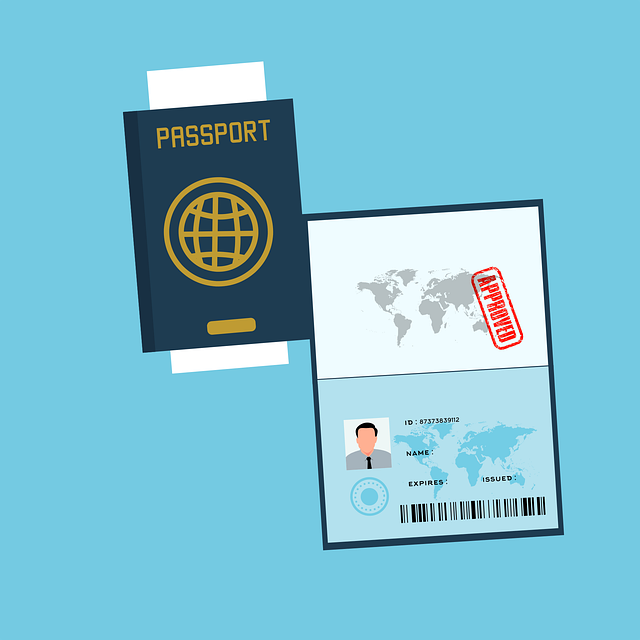Background checks for security positions, especially safety officers, are crucial for organizations prioritizing protection and trust. These rigorous investigations verify candidates' identities, education, employment history, and criminal records, ensuring only qualified and reliable individuals with untainted ethics are hired for sensitive roles. Robust checks include examining certifications, training records, and employment history to confirm their expertise meets job requirements, fostering a safe work environment during breaches or emergencies. Unqualified hiring poses significant risks, including legal liabilities and reputational damage. Comprehensive background checks, integrating verified safety officer credentials, reference checks, incident reports, and best practices, are vital for safeguarding against unqualified candidates in critical security roles.
In today’s world, thorough security background checks are essential to prevent unqualified hiring in sensitive roles. This article delves into the critical role of these checks, especially in verifying the credentials of safety officers. We explore the risks and consequences of neglecting qualifications, highlighting how comprehensive screening mitigates these dangers. Furthermore, best practices for conducting effective security screenings will be discussed to ensure organizations protect themselves and their employees.
- Understanding the Role of Security Background Checks
- The Importance of Verifying Safety Officer Credentials
- Unqualified Hiring Risks and Potential Consequences
- How Thorough Background Checks Mitigate Risks
- Best Practices for Conducting Effective Security Screening
Understanding the Role of Security Background Checks

Security background checks play a pivotal role in ensuring that only qualified and trustworthy individuals are hired for positions, particularly those involving sensitive responsibilities. These checks serve as a critical gatekeeper, verifying the integrity and suitability of potential employees, especially in roles like safety officers where credentials are paramount. By delving into an individual’s history, education, and experience, background investigations uncover any red flags that could compromise the security of an organization or its personnel.
The process involves rigorous verification of identities, educational certificates, employment records, and criminal histories. This comprehensive approach helps identify individuals who might pose a risk due to past behaviors or associations. For safety officers, whose duties often include handling confidential information, protecting high-profile individuals, or managing critical infrastructure, background checks are essential. They ensure that the person entrusted with such responsibilities is reliable, has no hidden agendas, and meets the required standards of conduct and ethics.
The Importance of Verifying Safety Officer Credentials

When it comes to hiring for sensitive roles, especially those in security, verifying safety officer credentials is paramount. It’s not just about finding someone with a specific set of skills; it’s about ensuring that person is qualified, trustworthy, and capable of handling high-stakes responsibilities. A thorough check of safety officer credentials includes examining certifications, training records, and past employment history to confirm their expertise aligns with the job requirements.
In the event of security breaches or emergencies, a well-vetted safety officer can swiftly respond, making critical decisions that protect personnel and property. The process of verifying these credentials acts as a crucial shield against unqualified individuals who may inadvertently—or intentionally—jeopardize operations. It’s an essential step in fostering a safe and secure work environment.
Unqualified Hiring Risks and Potential Consequences

Unqualified hiring can lead to significant risks and consequences for any organization, especially in roles that prioritize safety and security. When an individual lacks the necessary credentials or expertise as a safety officer, it compromises the integrity of the entire security protocol. This can result in a range of problems, from minor incidents to severe disasters. For instance, a lack of proper training could lead to inadequate surveillance, ineffective crisis management, or even negligence in handling hazardous materials.
Such hiring practices may also expose the organization and its employees to legal liabilities. In many jurisdictions, employing individuals without the required safety officer credentials can be considered a breach of labor laws and regulations. This could result in hefty fines, damage to the company’s reputation, and potential lawsuits if an accident or injury occurs due to the employee’s incompetence or lack of authorization.
How Thorough Background Checks Mitigate Risks

Thorough background checks play a pivotal role in mitigating risks associated with unqualified candidates entering positions that demand a high level of trust and responsibility, such as safety officer roles. These rigorous evaluations go beyond mere verification of educational qualifications and work history to uncover potential red flags or discrepancies. By scrutinizing an applicant’s entire background, including their criminal record, employment history, and personal references, employers gain valuable insights into their character and suitability for the role.
Such comprehensive checks ensure that safety officers possess the necessary skills, integrity, and dependability required to handle critical tasks. They help in identifying individuals who might pose a risk due to past misconduct or unethical behaviour, thereby preventing potential hazards in high-stakes environments. This proactive approach to screening candidates is essential for fostering a safe and secure workplace culture.
Best Practices for Conducting Effective Security Screening

When conducting security background checks, it’s crucial to follow best practices that ensure thoroughness and accuracy. Firstly, verify all safety officer credentials against recognized databases and certifications. This includes checking for any suspended or revoked licenses, as well as confirming their training and proficiency in relevant areas like emergency response, risk assessment, and crisis management.
Additionally, conduct comprehensive reference checks with previous employers or clients to gain insights into the candidate’s performance history and professionalism. Reviewing incident reports or disciplinary actions, if any, can also provide valuable context. Integrating these practices helps create a robust screening process that significantly reduces the risk of unqualified individuals gaining access to sensitive areas or handling critical responsibilities.
